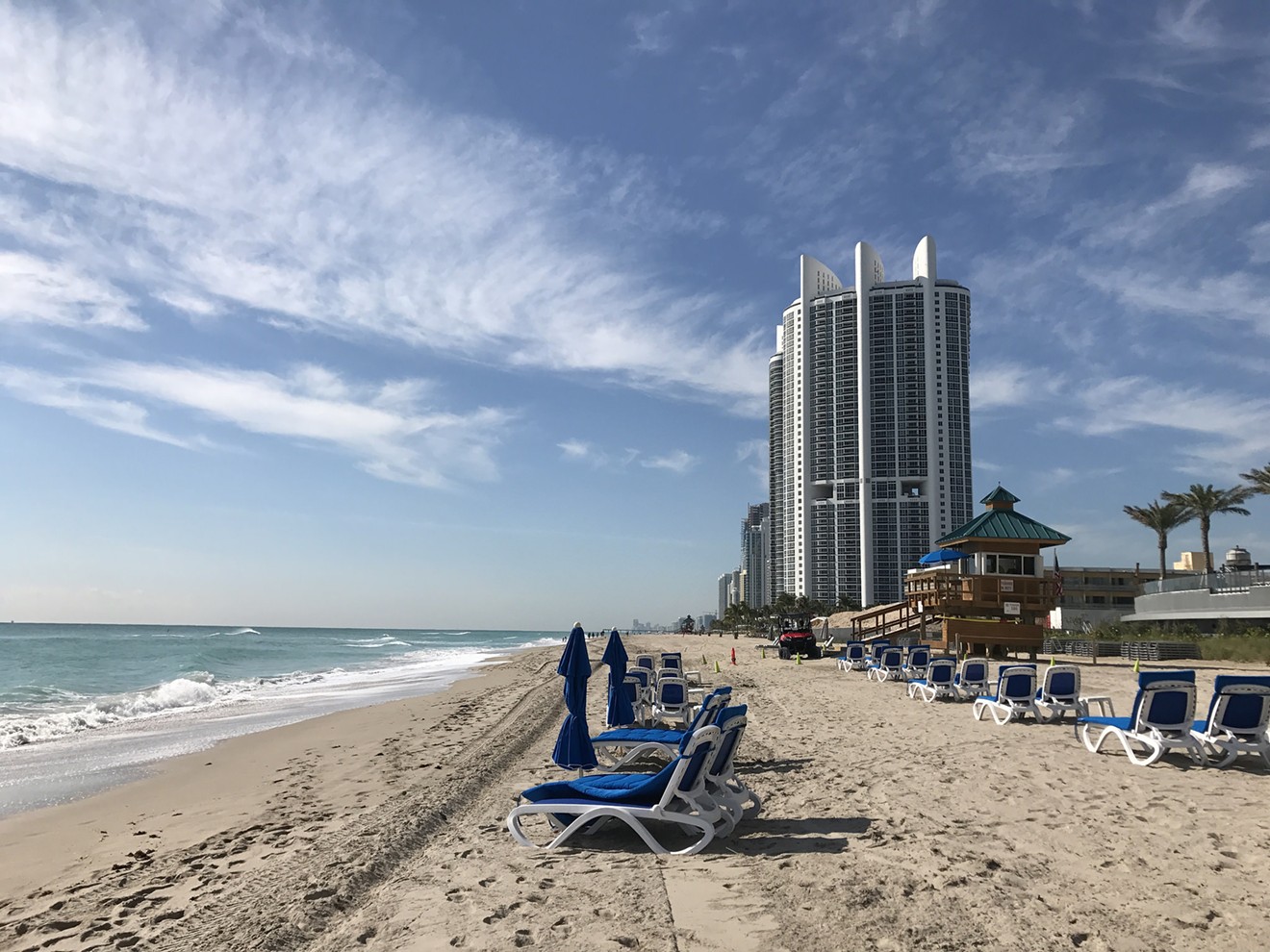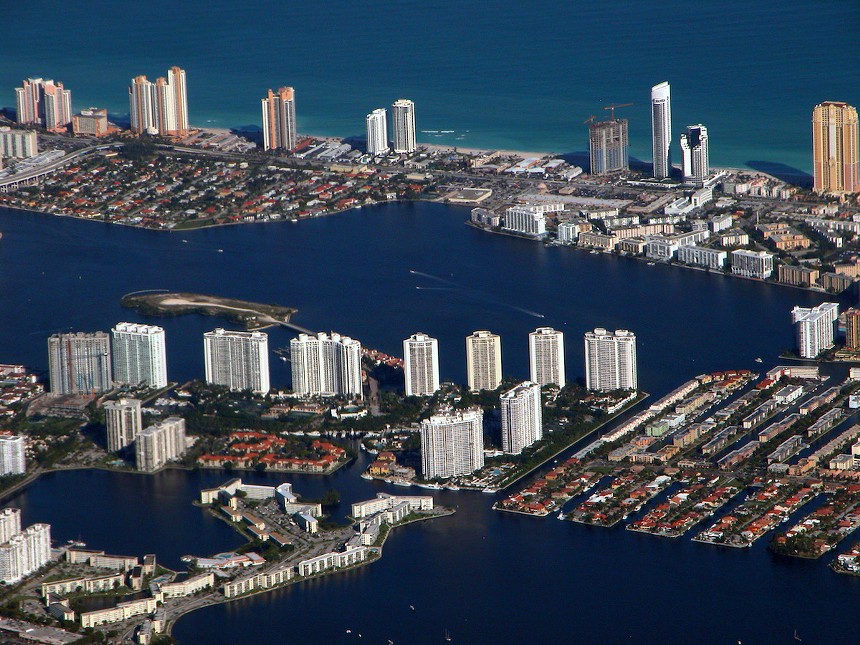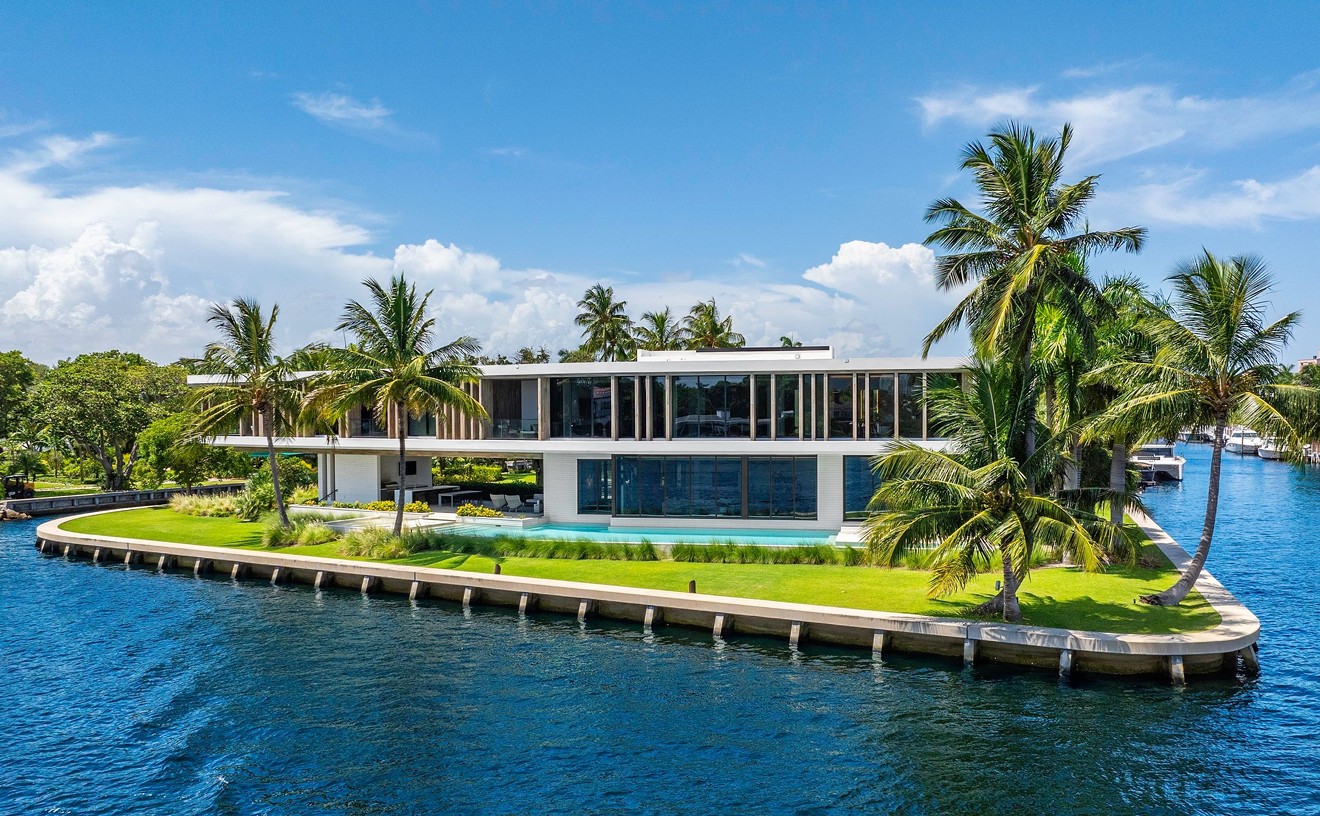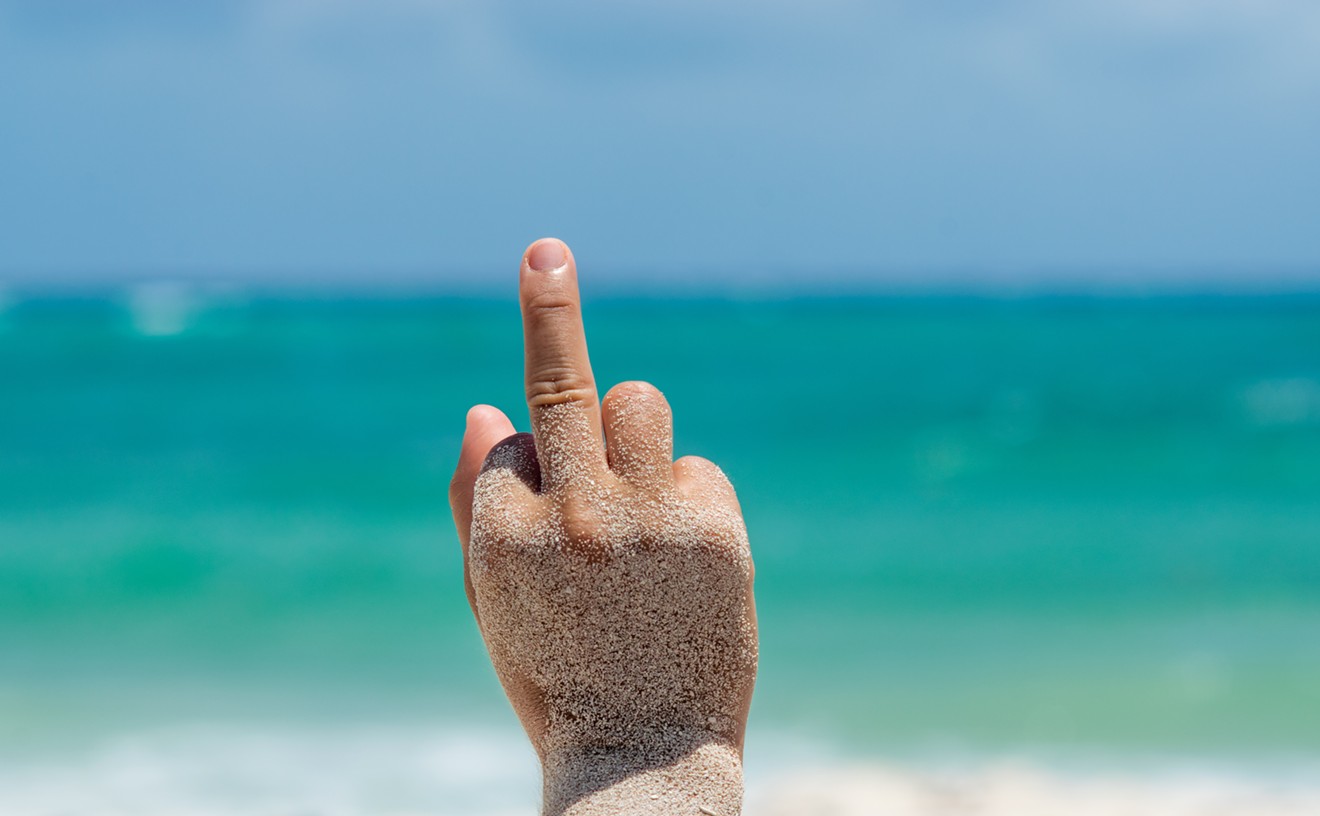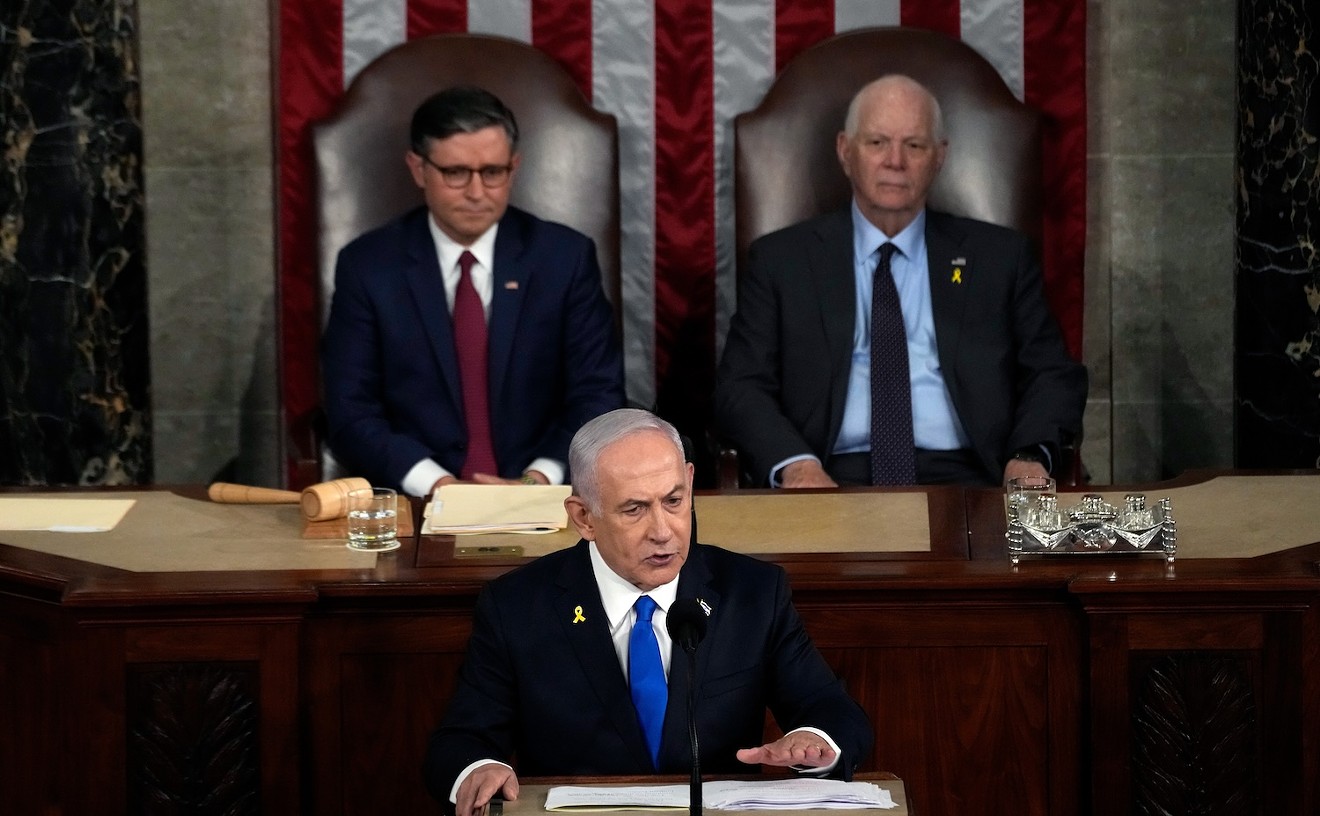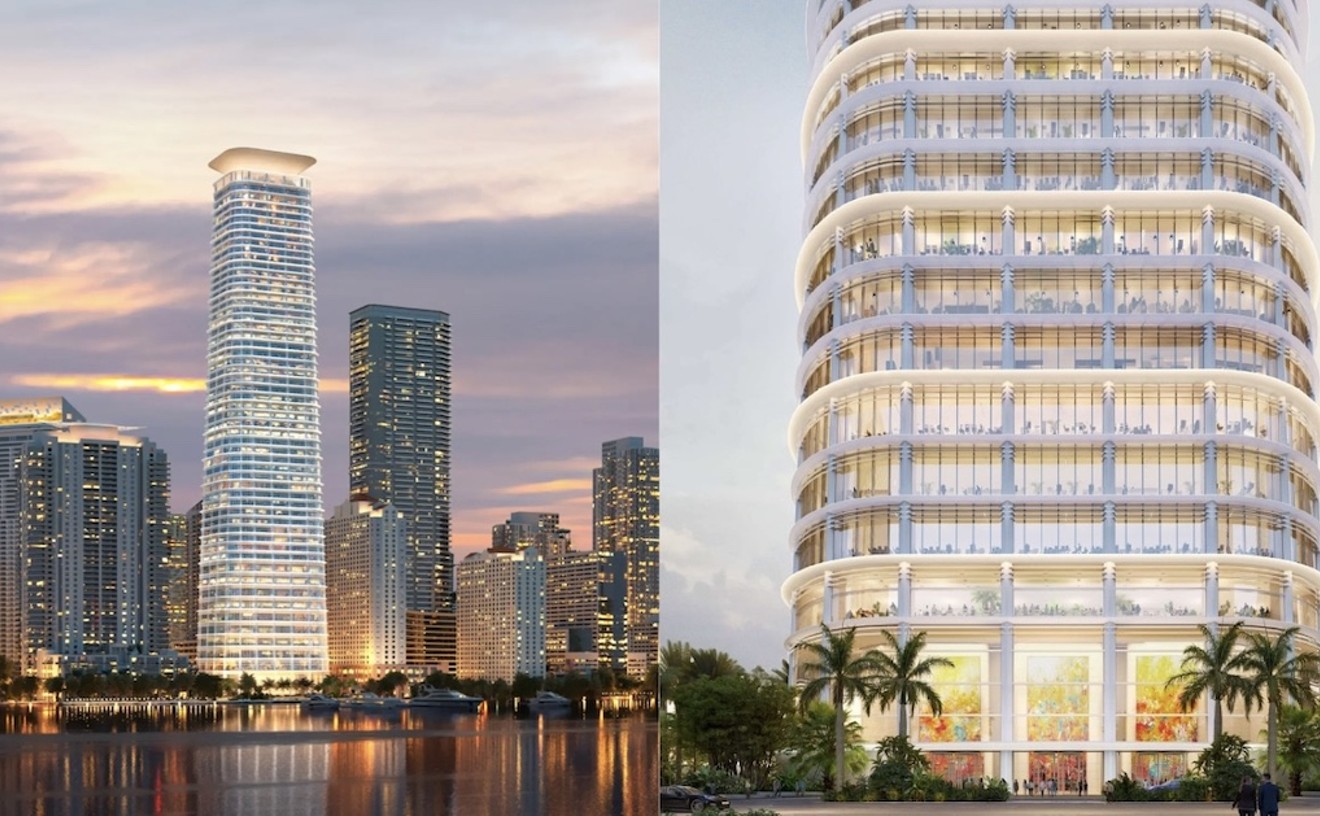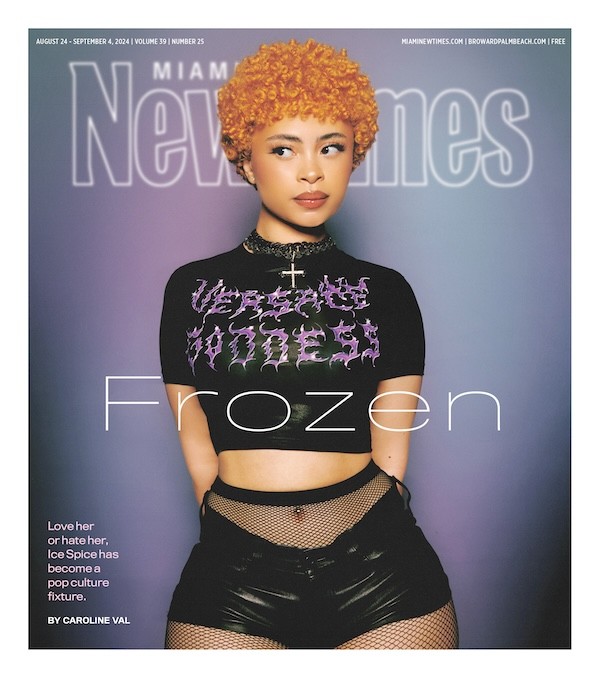The term "Little Moscow" has found new popularity over the past few weeks as Russia has continued its attack on Ukraine.
Around three days after Russia officially invaded its neighboring country, the moniker saw an unprecedented spike in interest according to Google Trends. Journalists have thrown around the phrase in recent coverage on Russian enclaves across the world. And some residents in Sunny Isles Beach, Miami's very own "Little Moscow," have recently shared their objections to the nickname.
Some folks use the phrase as an insult; others consider it endearing. But where did it come from? And when did Sunny Isles Beach residents begin using it? New Times set out to trace its origins.
Following the collapse of the former Soviet Union in 1991, people from post-Soviet states began flocking to Miami and settling along the beach in Sunny Isles, a neighborhood in northern Miami-Dade County. In 1997, the year Sunny Isles Beach was incorporated as a city, an article in the Sun Sentinel described how Russian-language signs and shops had begun popping up as Russians snapped up property and invested in businesses.
"This newly incorporated city that buffers the northern end of Miami Beach is home to what some emigres are calling Little Moscow," the March 1997 article, "Russian Emigres Find Opportunity in Sunny Isles," reads.
Miami historian Paul George remembers first hearing Sunny Isles Beach's "Little Moscow" nickname about a decade ago from students at the Wolfson Campus of Miami Dade College who worked or lived in the city.
Rather than having been coined by one person in particular, it appears the name grew in popularity over time thanks to residents, similar to how Miami's "Little Havana" neighborhood earned its name. George says. This can be attributed to Russians' steady presence in Sunny Isles Beach over the years –– even dating back to the 1950s and 1960s when the neighborhood was a strip of 30 beachside motels dubbed "Motel Row."
The municipality saw a 180-degree transformation decades later when the motels were replaced by high-rise condos and hotels where Russians would later work or live. (Or invest big cash in.)
"They've carved a niche," George says. "They are, in many ways, the hospitality industry. But also, some of the worldly ones have invested in some of those apartments."
While Sunny Isles Beach appears to have earned Moscow moniker sometime during the 1990s, the phrase "Little Moscow" appears to date back as early as the 1920s.
First used in Great Britain during the 1920s and 1930s in reference to communist strongholds in Scotland, England, and Wales, "Little Moscow" was initially a pejorative. Localities in Europe considered to have communist ties, including the village of Mörfelden in Germany, were also slapped with the nickname.
And similar to how immigrants settled in New York's "China Town" and "Little Italy," a number of Russian enclaves around the world have earned the sobriquet "Little Moscow" for their large Russian populations. In Sunny Isles Beach, where just over 7 percent of residents were Russian-speakers as of the 2010 census, data have consistently supported residents' use of the term. In 2019, an American Community Survey estimated that roughly 1,097 Russian-born residents called Sunny Isles Beach home. (The city's total population, for comparison, is roughly 22,000).
Yet despite the data and the history, some current Sunny Isles Beach residents aren't happy with the label.
"The proportion of Russians to the total population in SIB [Sunny Isles Beach] is not great enough to call it Little Moscow," Jennifer Levin, a former Sunny Isles Beach commissioner, wrote on Facebook on March 1. "Just.Stop.It."
"Agree with you 100%, as local resident for 20+ years," a fellow resident replied.
Levin, who served as a Sunny Isles Beach commissioner from 2012 to 2016, clarifies that her distaste for the nickname is nothing new and hasn't changed in light of the tragedy in Ukraine. She has always felt this way, she says.
"What am I going to do, run around hating every Russian in Sunny Isles Beach because Putin decided to invade the Ukraine?" she posits.
She notes that she's not into labeling and feels that calling Sunny Isles Beach ''Little Moscow" is different from, for example, "Little Italy," as Sunny Isles Beach is far smaller than New York City.
"I don't believe that 'Little Moscow' is a representation of what Sunny Isles Beach is," Levin says. "And it's not what it was ever meant to be known as, and it's not how it's marketed."
When discussing the origins of the nickname and Sunny Isles Beach with New Times, historian Paul George recalls the time a decade ago when he was eating dinner at Versailles with the late author Tom Wolfe, who shared his amazement at the sheer number of Russians in Sunny Isles Beach. At the time, the octogenarian Wolfe was in Miami working on Back to Blood, a 2012 novel that centers on a Cuban-American police officer in Miami.
Wolfe then spent several days in Miami attempting to capture the phenomenon of Russians in Sunny Isles Beach, George says.
"He came in one night — he's shaking his head. I said, 'Hey, what's going on today?'" George recalls. "He said, 'I just can't get over the Russians in Sunny Isles.'"

Audio By Carbonatix
[
{
"name": "Air - MediumRectangle - Inline Content - Mobile Display Size",
"component": "19274298",
"insertPoint": "2",
"requiredCountToDisplay": "2",
"watchElement": ".fdn-content-body",
"astAdList": [
{
"adType": "rectangle",
"displayTargets": "mobile"
}
]
},{
"name": "Editor Picks",
"component": "17482312",
"insertPoint": "4",
"requiredCountToDisplay": "1",
"watchElement": ".fdn-content-body",
"astAdList": [
{
"adType": "rectangle",
"displayTargets": "desktop|tablet"
},{
"adType": "rectangle",
"displayTargets": "desktop|tablet|mobile"
}
]
},{
"name": "Inline Links",
"component": "18711090",
"insertPoint": "8th",
"startingPoint": 8,
"requiredCountToDisplay": "7",
"maxInsertions": 25
},{
"name": "Air - MediumRectangle - Combo - Inline Content",
"component": "17482310",
"insertPoint": "8th",
"startingPoint": 8,
"requiredCountToDisplay": "7",
"maxInsertions": 25,
"watchElement": ".fdn-content-body",
"astAdList": [
{
"adType": "rectangle",
"displayTargets": "desktop|tablet"
},{
"adType": "rectangle",
"displayTargets": "desktop|tablet|mobile"
}
]
},{
"name": "Inline Links",
"component": "18711090",
"insertPoint": "8th",
"startingPoint": 12,
"requiredCountToDisplay": "11",
"maxInsertions": 25
},{
"name": "Air - Leaderboard Tower - Combo - Inline Content",
"component": "17482313",
"insertPoint": "8th",
"startingPoint": 12,
"requiredCountToDisplay": "12",
"maxInsertions": 25,
"watchElement": ".fdn-content-body",
"astAdList": [
{
"adType": "leaderboardInlineContent",
"displayTargets": "desktop|tablet"
},{
"adType": "tower",
"displayTargets": "mobile"
}
]
}
]

